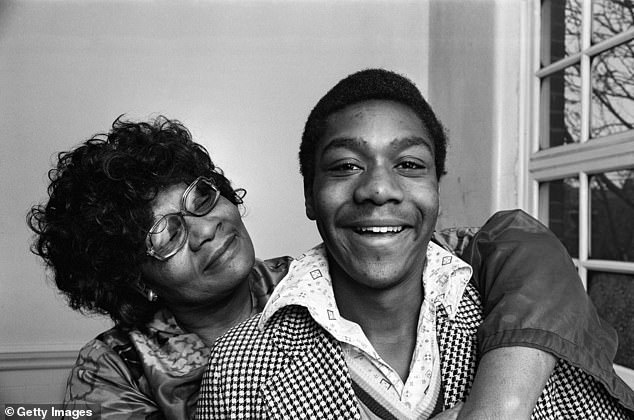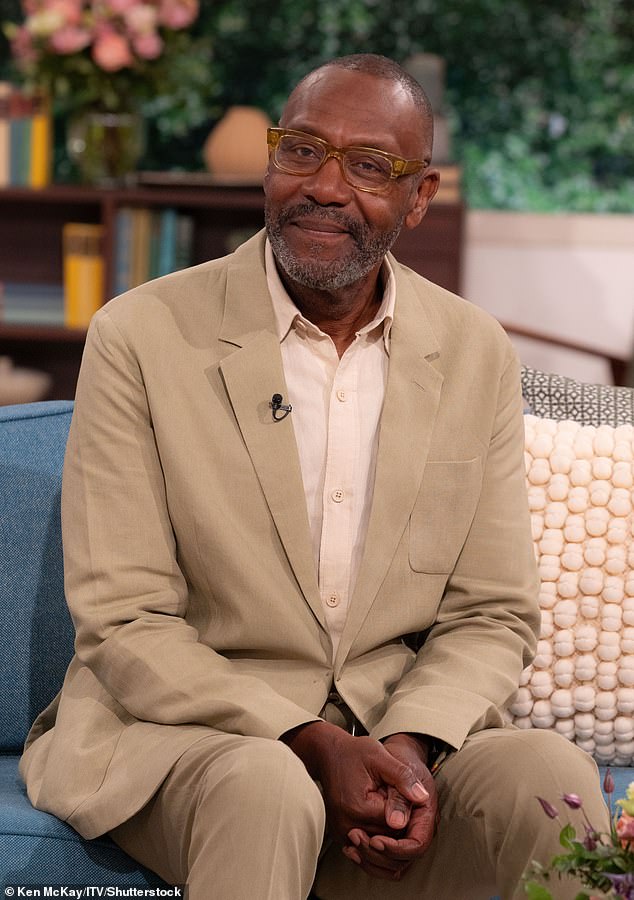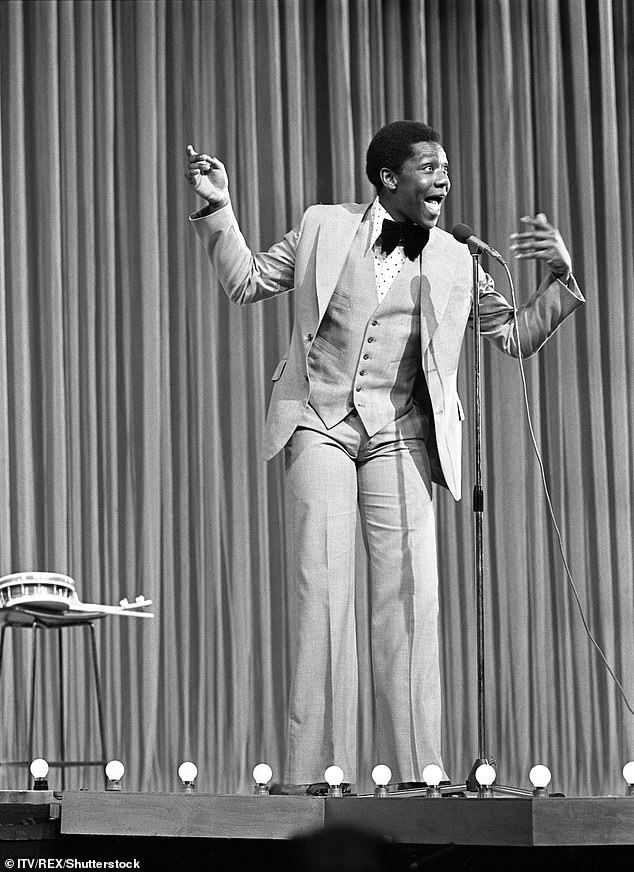Lenny Henry has revealed he used humour as his ‘shield’ against racist bullies during his childhood, because it encouraged others to ‘protect him.’
The comedian, 66, opened up about his past growing up in Dudley in a new interview, where he detailed the challenges of being in the ‘maelstrom’ of divided Britain in the mid 1960s.
Speaking to The Sunday Times’ Culture Magazine, Lenny shared that much of his defence from racism came from his late mother Winifred.
He said that Winifird herself had ‘horrible things’ shouted at her in the street after she migrated to the UK from Jamaica as part of the Windrush Generation.
At the time, black children living in Dudley were advised to go out in pairs due to the fear of racist abuse they endured.
Tensions were heightened when Conservative Enoch Powell delivered his much-criticised Rivers Of Blood speech about immigration in Birmingham, for which he was accused of stirring up racial hatred.

Lenny Henry, 66, has revealed he used humour as his ‘shield’ against racist bullies during his childhood (pictured with his mother Winifred in 1975)

The comedian opened up about his past growing up in Dudley in a new interview, where he detailed the challenges of being in the ‘maelstrom’ of divided Britain in the mid 1960s
But Lenny said he realised he could use his humour as a defence against the abuse, telling the publication: ‘We were in the midst of this maelstrom, but you don’t know that when you’re kids. You just gravitate to people who like you, or want to snog you.’
‘My humour became my sword and shield. I could deflect something with a joke. I was being beaten up by one kid when I started to talk about the ridiculousness of us rolling around on the floor like we were married. People started to laugh and suddenly people thought I was worth something.
‘I was still punched, but I’d have people protecting me. I had three white friends by the time I was 12: Greg, Mac and Tom. I still know them today and they saved my life, really. They encouraged me to be funny.’
In the interview, Lenny also reflected on his relationship with his late mother, who died in 1998, sharing he still goes to ‘grief therapy’ in the wake of her passing.
Detailing his own mental health struggles, the Broadchurch star said he feels people have gotten better at admitting they ‘need help’ over the past decade, something he’s encouraged after losing several friends to suicide.
Earlier this year, Lenny who is currently starring in the play Every Brilliant Thing at London’s Soho Place, hinted he may be making a return to stand-up comedy after a 15-year hiatus to focus on acting.
Speaking about his return, Lenny told The Mirror: ‘It’s been a while, but there are plans in motion.’
He hinted that his new material could include a mix of classic and fresh content and teased that some of his iconic characters from The Lenny Henry Show, such as Theophilus P. Wildebeeste and Delbert Wilkins, might make a reappearance alongside modern creations.

Lenny, who rose to fame on the comedy show New Faces (pictured), said much of his defence against racism came from his mother, who had ‘horrible things’ shouted at her in the street
He explained: ‘It might just be me talking to the audience, but I love weaving in the characters. It’s the 21st century, though, so I want to try something new.’
The comedian also addressed concerns about navigating today’s comedy landscape, saying: ‘People can say anything they like, as long as they edit themselves. If you can’t self-edit, that’s when you’re in trouble.’
Sir Lenny first made his mark on shows like Tiswas and as a warm-up act for comedy greats Morecambe and Wise.
More recently, he’s earned acclaim for his acting, including a role in Harlan Coban’s Netflix hit Missing You earlier this year.
With his comeback on the horizon, Lenny said he’s inspired by changes in society and politics, describing the current climate as ‘a massive smorgasbord of subject matter.’












